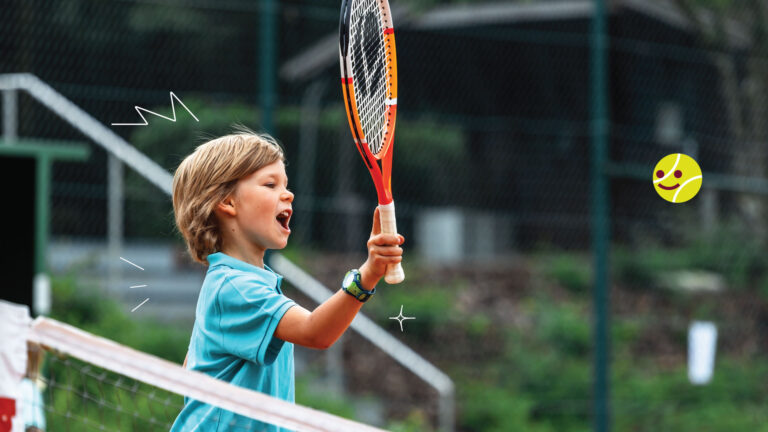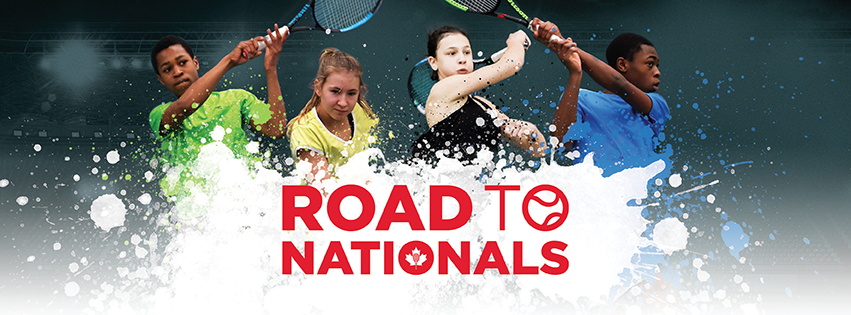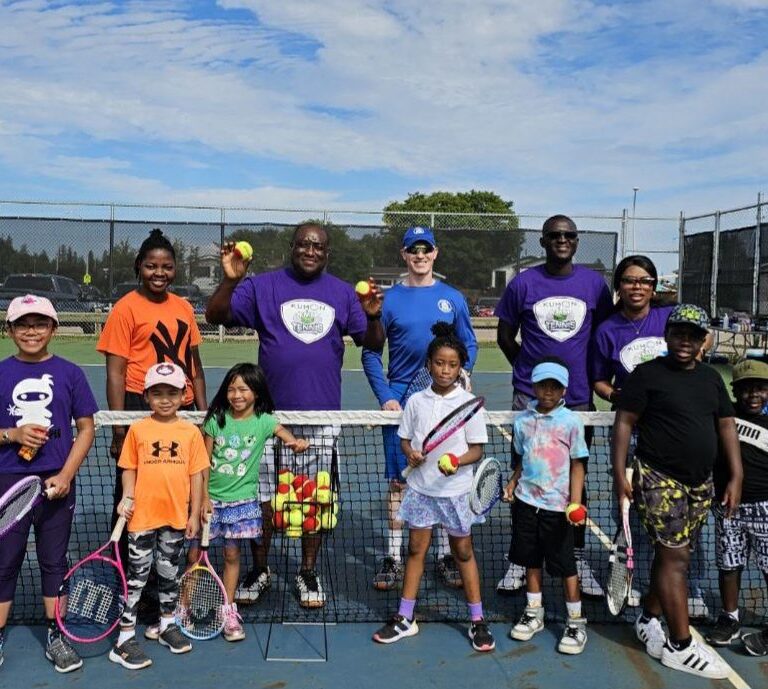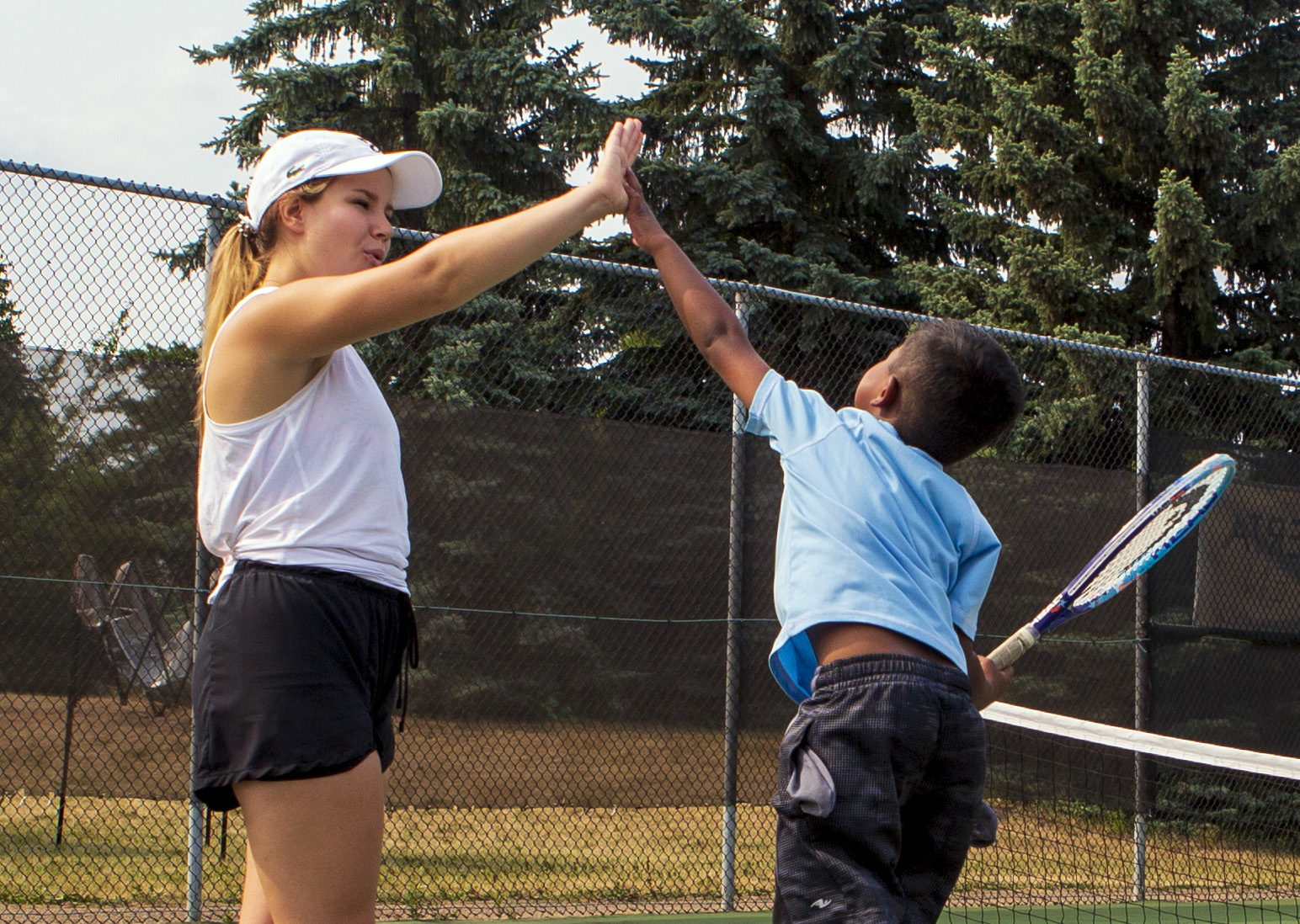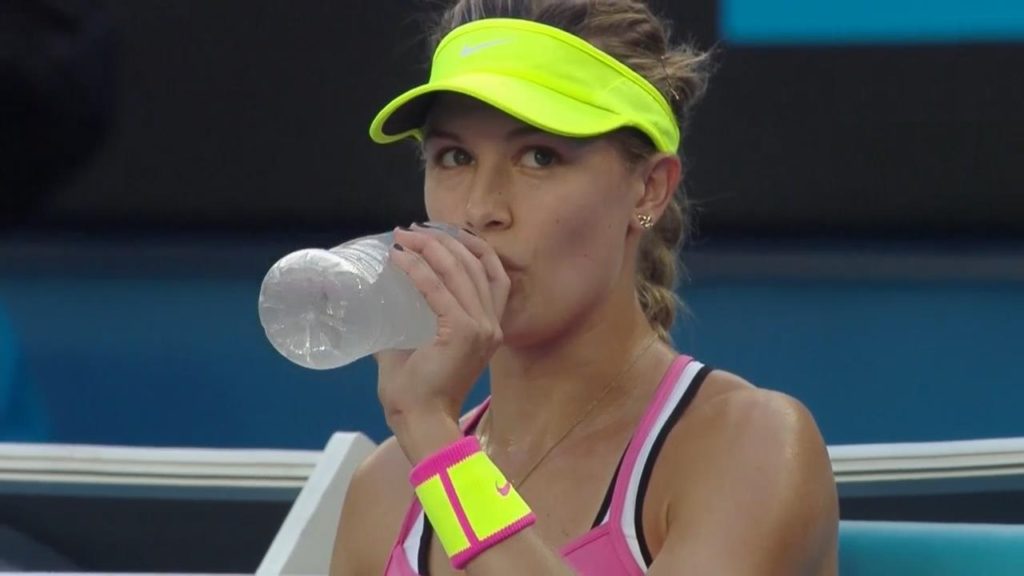
Sports nutrition goes hand in hand with sports hydration. Your body needs plenty of fuel and water to perform with power and endurance on the court. But there’s a fascinating science behind how different fluids can keep you in prime athletic performance.
The next time you take in a professional tennis match, take a moment notice the habits of the pros. How often do they drink? What are they drinking? You might notice that top players tend to have a bottle of orange or pink liquid on hand at matches. This is often a sports drink packed with electrolytes. However, before you start on a Gatorade cleanse, there are a few things to know about sports drinks versus water. The truth is, you can get a whole lot more from your hydration routine if you drink certain beverages at certain times. Before we get into the “water vs. sports drinks for tennis” debate, let’s dive into the science of hydration.
The Science Behind Sports Hydration
You might be thinking “really? There’s a science to drinking fluids?” While it’s common sense to drink plenty of water to keep your body and cells hydrated, understanding what role fluids play in your body’s complex systems will help you decide what to drink and when for your best performance.
According to tennis experts: “Dehydration of as little as 1-2 percent of body weight (only 1.5-3 pounds for a 150 lb. athlete) has been shown to reduce performance.”
There are plenty of ways your body will protest a lack of water while you play. Dehydration obstructs body functions like hormone regulation, metabolic activities, and circulation. When you put stress on your body during an intense match, these systems are what provide you with endurance. Energy levels deplete quickly when you’re dehydrated because your body isn’t able to process and send out the hormones, oxygen, minerals, and nutrients it needs.
Staying Hydrated During a Match
Your body will guide how much you drink throughout a match. It’s completely okay to let your thirst guide your fluid intake.
The only struggle is remembering to stay on top of it. If you wait until your mouth is a desert and then drain a whole bottle of water at once, your thirst will disappear, but you’ll also feel bloated. The best way to stay hydrated without hindering your performance during a match is to drink little and drink often – every time you take a break on the court, take a sip! Keep a water bottle or your sports drink (or both) on hand. If necessary, set a timer during practice to make sure you aren’t letting too much time pass between sips. Make it a habit during practice, and it will stick for important tournaments and matches.
Next, let’s talk about what you should be drinking on the court.
Sports Drinks for Tennis Matches?
The short answer is yes – sports drinks can benefit you during a match, or even a particularly challenging workout. Tennis players love their sports drinks. Here’s a YouTube clip of Rafa Nadal calling out during a match for his drink of choice.
Sports drinks differ from plain water because they contain electrolytes. Electrolytes are minerals like chloride, calcium, magnesium, sodium, and potassium, which carry electrical signals throughout the body. Those electrical signals are responsible for different types of movement in the body. Muscle contraction, fluid movement, brain commands, and a number of other functions require electrolytes. Sports drinks can help with hand-eye coordination, strength, and more during a tennis match.
However, there are two important things to keep in mind about sports drinks in tennis.
First, sports drinks are intended for, well… sports. The concentrated electrolytes are meant for athletes who are expending serious physical energy. This is because you typically lose electrolytes through your sweat. When you sweat over a long period of time, sports drinks can easily replace those lost electrolytes. On the other hand, if you’re going to be a couch potato for a week, you probably don’t need to load up on electrolytes – water will do just fine.
Second, you need to make sure you’re drinking the right type of sports drinks. Some of the typical brands come packed with unnecessary sugars and artificial colours. Read the label and do some research to make sure you’re getting the benefit of electrolytes, without loading up on sugar or chemicals.
Another option for getting your electrolytes in without buying an expensive sports drink for a tennis match is an electrolyte tablet that can be added to your water. If you’re feeling ambitious and want to save money, you can also try mixing up your own electrolyte brew.
Fruits and vegetables are another major source of electrolytes, so be sure to eat your greens every day to stock up! One electrolyte that’s easy to track in your diet is your sodium. You can find sodium levels on nutrition labels. Of course, it’s always a little harder to track sodium when you’re eating healthy, home-cooked meals, because they don’t come with handy nutrition labels. That’s why MealKraft ready-to-eat meals are great for busy athletes who want to track their nutrient and mineral intakes. Every MealKraft meal includes a nutrition label so you know exactly what you’re taking in. Easily add it to your MyFitnessPal app, or whatever tracking system you use to make sure you’re getting enough sodium to replenish those electrolytes!
Staying Hydrated Between Matches
When you aren’t working on your swing, skip the sports drinks and opt for a good old-fashioned glass of H2O. Typically, it’s recommended that athletes consume about 2 liters of water per day. The best way to ensure you’re getting enough is to track it by portioning out your water at the start of the day. Use a full 2L jug of water to fill your glass or bottle from as needed. By the end of the day, you’ll be able to see how much you’ve consumed. Also keep in mind that your body will likely be more dehydrated in the morning, so make sure you get started with a glass of water first thing in the morning.
Of course, every once in a while, you’ll want to indulge in a beverage that’s little more thrilling than water. If you’re craving carbonation, skip the sugar and chemical-packed soda and have a carbonated water. Or, better yet, fuel up on probiotics with a locally crafted Boocha. Kombucha drinks are extremely popular among fitness gurus and athletes because of their amazing taste, carbonated feel, and healthy probiotics that aid in digestion and good gut health. They’re a nourishing alternative to soda, but still just as enjoyable!


